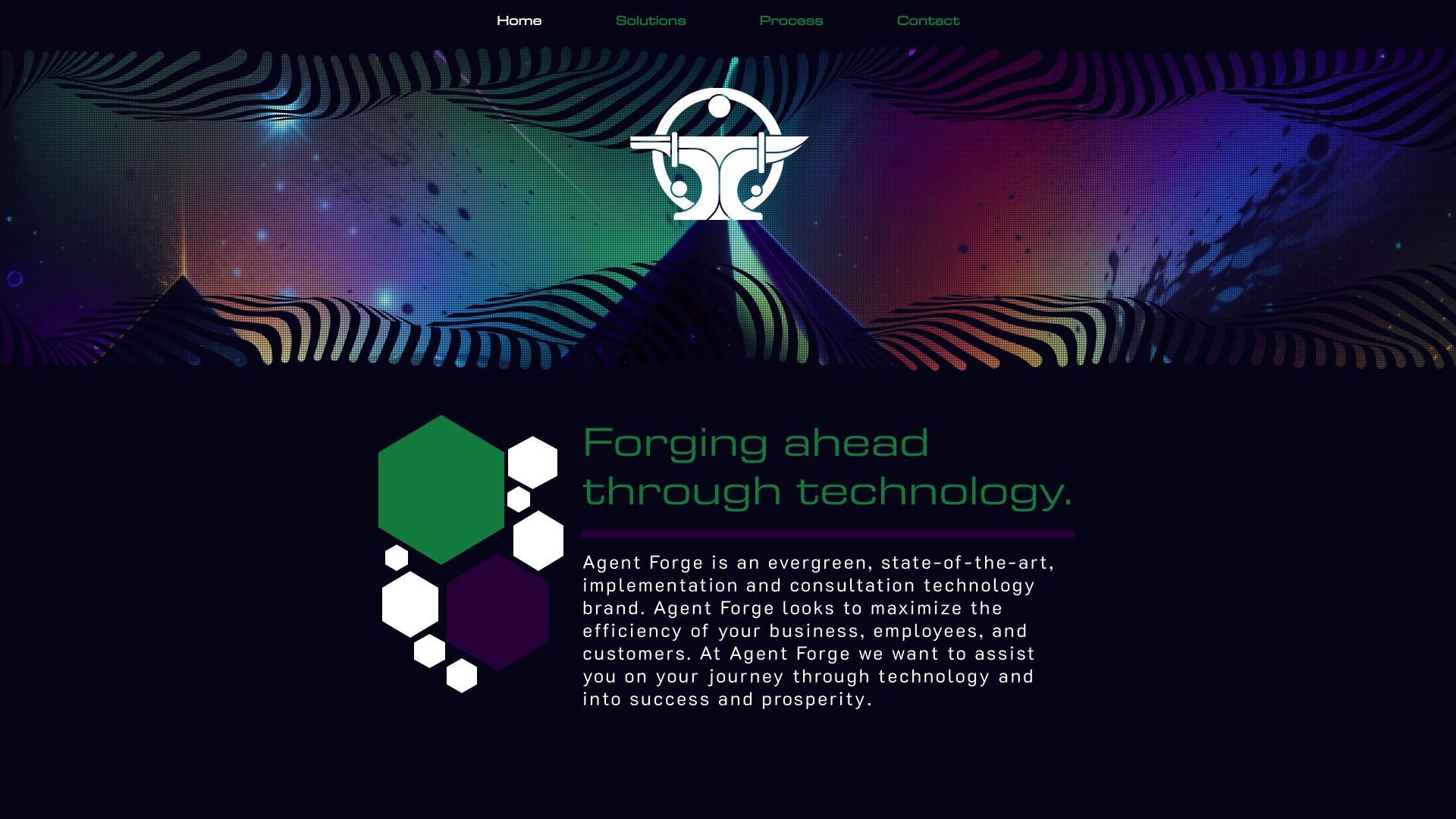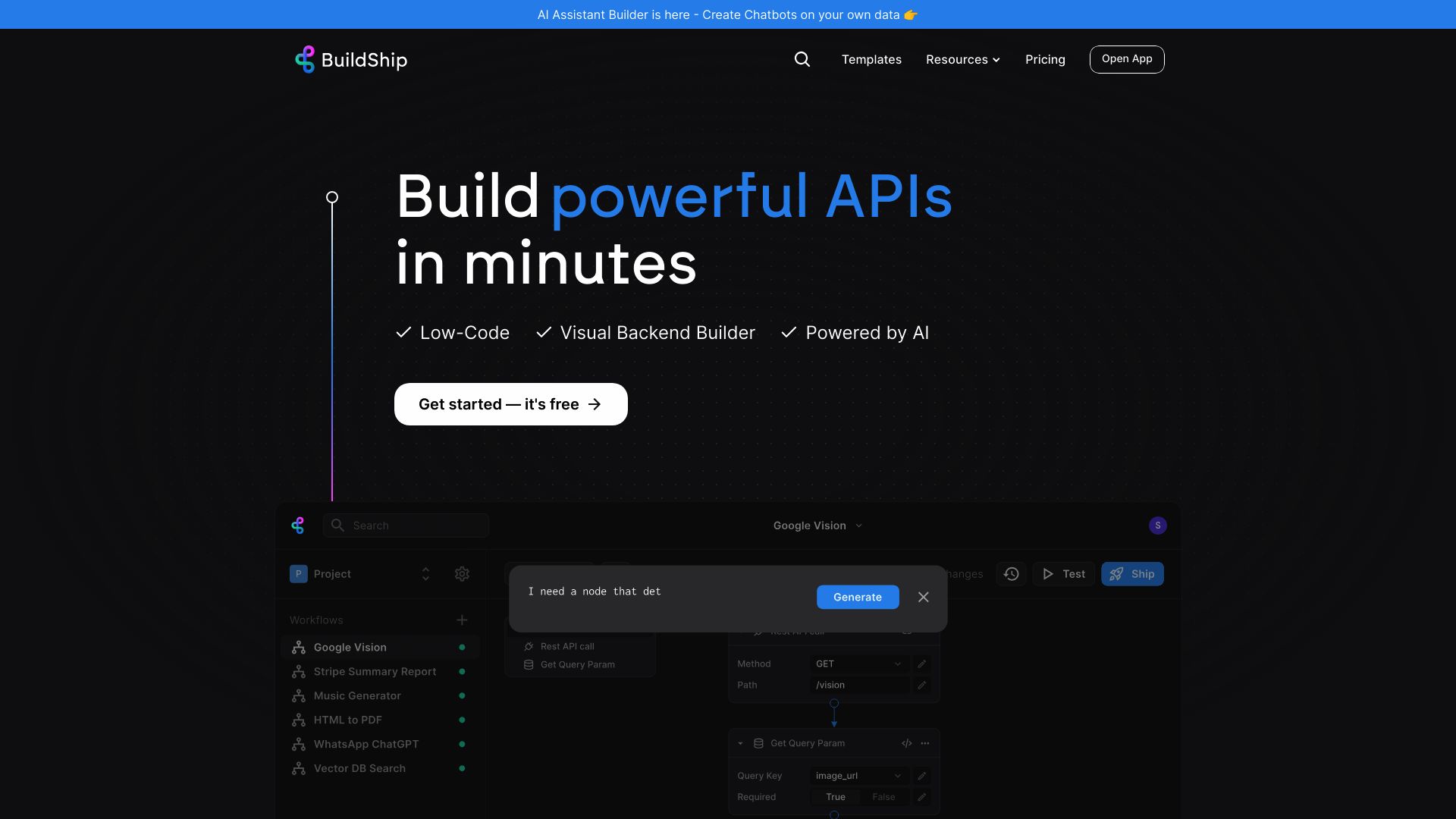Agent Forge vs. BuildShip: AI Development Platforms Compared
AI development platforms revolutionize how businesses create intelligent systems, automate workflows, and deploy cutting-edge solutions. This comparison explores three leading platforms: Agent Forge vs. BuildShip, and SmythOS. We examine their unique approaches to AI agent development, workflow automation, and backend integration.
By analyzing key features, use cases, and target audiences, this guide equips developers, business leaders, and AI enthusiasts with the knowledge to choose the right platform for their needs. From open-source flexibility to no-code simplicity and enterprise-grade security, discover how these tools shape the future of AI-driven innovation and productivity.
Agent Forge Overview
Agent Forge empowers developers to create and manage AI-powered autonomous agents. This open-source Python framework provides a flexible foundation for building cognitive architectures and automating complex tasks.
Developers harness Agent Forge to prototype AI assistants, automate workflows, and craft intelligent systems. The platform supports major language models like GPT and Claude, offering a playground for both novices and experts to experiment with agent architectures.
Agent Forge empowers developers to create and manage AI-powered autonomous agents. This open-source Python framework provides a flexible foundation for building cognitive architectures and automating complex tasks.


Agent Forge excels in flexibility and customization. Its modular design allows developers to orchestrate multi-agent scripts, integrate custom data sources, and leverage pre-built templates. The framework’s memory management system, powered by ChromaDB, enables agents to maintain context and learn from interactions.
Its modular design allows developers to orchestrate multi-agent scripts, integrate custom data sources, and leverage pre-built templates.
While Agent Forge offers powerful tools for AI development, it lacks some features found in more comprehensive platforms. The absence of a visual builder and no-code editor may limit accessibility for non-technical users. Additionally, the framework doesn’t provide built-in explainability tools or debug modes, which could pose challenges for complex agent development.
Agent Forge integrates seamlessly with third-party APIs and services, expanding its capabilities beyond core functionalities. This extensibility makes it well-suited for long-term AI projects that require adaptation and growth. However, users should note that some advanced features like multimodal inputs, scheduled deployments, and built-in analytics are not natively supported.
BuildShip Overview
BuildShip revolutionizes backend development with its visual no-code platform for creating, testing, and deploying workflows and APIs. This innovative tool empowers developers and non-technical users alike to build sophisticated backend systems without extensive coding knowledge.
At the heart of BuildShip’s offering is a drag-and-drop workflow builder featuring pre-built nodes and AI-generated custom nodes. This intuitive interface allows users to integrate various data sources, APIs, and AI models seamlessly. For those requiring more control, BuildShip supports custom logic implementation in JavaScript or TypeScript, striking a balance between accessibility and flexibility.
BuildShip revolutionizes backend development with its visual no-code platform for creating, testing, and deploying workflows and APIs.
BuildShip excels in testing capabilities, providing tools to evaluate individual nodes and entire workflows. This iterative approach ensures robust, production-ready APIs that integrate smoothly into existing applications. The platform also offers scheduling features for automated workflow execution and leverages AI to autofill inputs using natural language prompts, significantly accelerating development cycles.


Security remains a top priority for BuildShip, with secure storage for API keys and secrets. The platform simplifies OAuth integration, enhancing connectivity with various services while maintaining data confidentiality. However, BuildShip lacks some advanced features found in other AI agent builders, such as autonomous agents, explainability tools, and multi-agent collaboration capabilities.
While BuildShip excels in workflow automation and API development, it may not fully meet the needs of users seeking comprehensive AI agent development tools. The platform’s focus on backend processes and integrations makes it an excellent choice for businesses looking to streamline operations and create efficient APIs, but those requiring more advanced AI functionalities might find it limiting.
Feature Comparison
Agent Forge and BuildShip offer contrasting approaches to AI development and workflow automation. Agent Forge provides a flexible Python framework for building autonomous AI agents, while BuildShip focuses on visual no-code backend development.
Agent Forge excels in AI agent development, supporting major language models and offering customizable memory management. However, it lacks visual building tools and no-code options, limiting accessibility for non-technical users. BuildShip, conversely, shines with its drag-and-drop interface and AI-generated custom nodes, making backend development more accessible to a broader audience.
Security features reveal significant gaps between the platforms. BuildShip prioritizes secure API key storage and OAuth integration, addressing critical data protection needs. Agent Forge, while supporting OAuth for some integrations, lacks explicit mentions of advanced security measures like data encryption or IP control. This disparity highlights BuildShip’s stronger position for enterprises requiring robust security protocols.
| Agent Forge | BuildShip | SmythOS | |
|---|---|---|---|
| CORE FEATURES | |||
| Visual Builder | ❌ | ✅ | ✅ |
| No-Code Options | ❌ | ✅ | ✅ |
| Memory & Context | ✅ | ❌ | ✅ |
| Autonomous Agents | ✅ | ❌ | ✅ |
| Explainability & Transparency | ❌ | ❌ | ✅ |
| Debug Tools | ❌ | ✅ | ✅ |
| Multimodal | ❌ | ❌ | ✅ |
| Problem-Solving Capabilities | ✅ | ❌ | ✅ |
| Multi-Agent Collaboration | ✅ | ❌ | ✅ |
| Human-AI Interaction | ✅ | ❌ | ✅ |
| Audit Logs for Analytics | ❌ | ❌ | ✅ |
| Work as Team | ❌ | ❌ | ✅ |
| Bulk Work | ❌ | ✅ | ✅ |
| Agent Work Scheduler | ❌ | ✅ | ✅ |
| Logs & Monitoring | ❌ | ✅ | ✅ |
| SECURITY | |||
| Constrained Alignment | ❌ | ❌ | ✅ |
| Data Encryption | ❌ | ✅ | ✅ |
| OAuth | ❌ | ✅ | ✅ |
| IP Control | ❌ | ✅ | ✅ |
| COMPONENTS | |||
| Foundation AIs | ❌ | ❌ | ✅ |
| Huggingface AIs | ❌ | ❌ | ✅ |
| Zapier APIs | ❌ | ❌ | ✅ |
| All other APIs, RPA | ❌ | ✅ | ✅ |
| Classifiers | ❌ | ❌ | ✅ |
| Logic | ❌ | ✅ | ✅ |
| Data Lakes | ❌ | ❌ | ✅ |
| DEPLOYMENT OPTIONS (EMBODIMENTS) | |||
| Deploy as API | ❌ | ✅ | ✅ |
| Deploy as Webhook | ❌ | ✅ | ✅ |
| Staging Domains | ❌ | ❌ | ✅ |
| Production Domains | ❌ | ❌ | ✅ |
| API Authentication (OAuth + Key) | ❌ | ✅ | ✅ |
| Deploy as Site Chat | ❌ | ❌ | ✅ |
| Deploy as Scheduled Agent | ❌ | ✅ | ✅ |
| Deploy as GPT | ❌ | ❌ | ✅ |
| Scalability | ❌ | ✅ | ✅ |
| DATA LAKE SUPPORT | |||
| Hosted Vector Database | ❌ | ❌ | ✅ |
| Sitemap Crawler | ❌ | ❌ | ✅ |
| YouTube Transcript Crawler | ❌ | ❌ | ✅ |
| URL Crawler | ❌ | ❌ | ✅ |
| PDF Support | ✅ | ❌ | ✅ |
| Word File Support | ❌ | ❌ | ✅ |
| TXT File Support | ✅ | ❌ | ✅ |
Best Alternative to Agent Forge and BuildShip
SmythOS stands out as the superior alternative to Agent Forge and BuildShip for AI agent development and deployment. Our platform combines the best of both worlds, offering a powerful and flexible environment for creating sophisticated AI agents while maintaining an intuitive, user-friendly interface.
Unlike Agent Forge’s code-heavy approach or BuildShip’s limited AI capabilities, SmythOS provides a comprehensive visual builder that enables users of all skill levels to create complex AI workflows without extensive programming knowledge. We offer a drag-and-drop interface, pre-built API integrations, and support for a wide array of AI models, making advanced AI functionalities accessible and straightforward.
SmythOS provides a comprehensive visual builder that enables users of all skill levels to create complex AI workflows without extensive programming knowledge.
SmythOS excels in areas where Agent Forge and BuildShip fall short. While Agent Forge lacks visual building tools and BuildShip focuses primarily on backend development, our platform offers a complete ecosystem for AI agent creation, testing, and deployment. We provide robust memory management, multi-agent collaboration, and advanced problem-solving capabilities that surpass both competitors.
Security is a top priority for SmythOS. We implement comprehensive measures including data encryption, OAuth integration, and IP control — features that Agent Forge notably lacks and BuildShip only partially addresses. This makes our platform ideal for enterprises requiring stringent data protection protocols.
Furthermore, SmythOS offers unparalleled deployment flexibility. Users can deploy AI agents as APIs, webhooks, scheduled tasks, or even integrate them into popular platforms like ChatGPT. This versatility, combined with our scalable infrastructure, positions SmythOS as the ideal choice for businesses looking to leverage AI across various applications and industries.
Conclusion
Agent Forge, BuildShip, and SmythOS each offer unique approaches to AI development and workflow automation. Agent Forge provides a flexible Python framework for building autonomous AI agents, while BuildShip focuses on visual no-code backend development. SmythOS, however, emerges as the superior choice, combining the strengths of both platforms and offering additional advanced features.
SmythOS stands out with its comprehensive suite of tools for AI agent development and deployment. Its drag-and-drop interface rivals BuildShip’s ease of use, while its support for major language models and customizable memory management matches Agent Forge’s flexibility. SmythOS goes further by offering multimodal capabilities, problem-solving prowess, and seamless multi-agent collaboration, features not prominently available in the other platforms.
Security and scalability set SmythOS apart. While BuildShip offers secure API key storage and OAuth integration, SmythOS provides a more robust security framework, including data encryption and IP control. The platform’s ability to deploy agents across various environments, from development to production, coupled with its extensive integration ecosystem of over 300,000 connections, makes it an ideal choice for businesses of all sizes.
For those ready to experience the future of AI automation, SmythOS offers a risk-free trial with unlimited agents. Explore our diverse range of AI-powered agent templates to jumpstart your projects, or dive into our comprehensive documentation to unlock the full potential of the platform. With SmythOS, you’re not just adopting a tool; you’re embracing a revolution in AI-powered productivity.
Last updated:
Disclaimer: The information presented in this article is for general informational purposes only and is provided as is. While we strive to keep the content up-to-date and accurate, we make no representations or warranties of any kind, express or implied, about the completeness, accuracy, reliability, suitability, or availability of the information contained in this article.
Any reliance you place on such information is strictly at your own risk. We reserve the right to make additions, deletions, or modifications to the contents of this article at any time without prior notice.
In no event will we be liable for any loss or damage including without limitation, indirect or consequential loss or damage, or any loss or damage whatsoever arising from loss of data, profits, or any other loss not specified herein arising out of, or in connection with, the use of this article.
Despite our best efforts, this article may contain oversights, errors, or omissions. If you notice any inaccuracies or have concerns about the content, please report them through our content feedback form. Your input helps us maintain the quality and reliability of our information.
